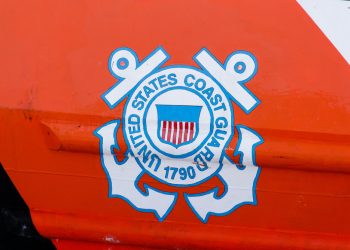After responding to over 700 false alerts in 2018, the US Coast Guard is calling anyone with an emergency position indicating radio beacon to properly register their device.
US Coast Guard personnel were only able to contact 163 of the more than 700 EPIRB owners to determine the cause of the false alerts. The other individuals had not registered their beacons, nor updated their registration information, or had disposed of them improperly.
[smlsubform prepend=”GET THE SAFETY4SEA IN YOUR INBOX!” showname=false emailtxt=”” emailholder=”Enter your email address” showsubmit=true submittxt=”Submit” jsthanks=false thankyou=”Thank you for subscribing to our mailing list”]
When US Coast Guard watchstanders receive an EPIRB alert and cannot trace it to the owner due to missing or outdated registration information, they launch aircraft and boat crews to search the area for signs of distress.
An EPIRB transmits a distress signal to a satellite system called Cospas-Sarsat. The satellites then sends the signal to a network of ground units and finally to the US Coast Guard and other emergency responders.
Owners of commercial fishing vessels, uninspected passenger vessels that carry six or more people, and uninspected commercial vessels are legally required to carry an EPIRB. However, the USCG recommends that every mariner who sails offshore or on long voyages should carry an EPIRB.
The Federal Communications Commission requires all EPIRB owners to register their beacons with NOAA and keep the registration information updated.
If an unregistered beacon activates, the FCC can prosecute the owner based on evidence provided by the US Coast Guard, and will issue warning letters or notices of apparent liability for fines up to $10,000.






























































